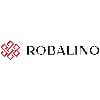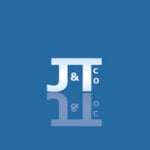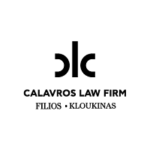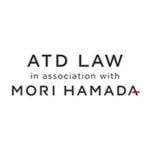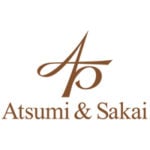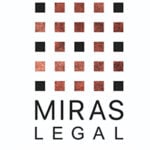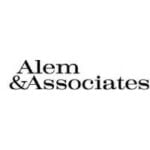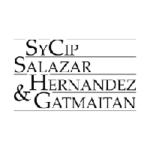-
What legislation applies to arbitration in your country? Are there any mandatory laws?
-
Is your country a signatory to the New York Convention? Are there any reservations to the general obligations of the Convention?
-
What other arbitration-related treaties and conventions is your country a party to?
-
Is the law governing international arbitration in your country based on the UNCITRAL Model Law? Are there significant differences between the two? Are there any impending plans to reform the arbitration laws in your country?
-
What arbitral institutions (if any) exist in your country? When were their rules last amended? Are any amendments being considered?
-
Is there a specialist arbitration court in your country?
-
What are the validity requirements for an arbitration agreement under the laws of your country?
-
Are arbitration clauses considered separable from the main contract?
-
Do the courts of your country apply a validation principle under which an arbitration agreement should be considered valid and enforceable if it would be so considered under at least one of the national laws potentially applicable to it?
-
Are asymmetric arbitration clauses – for instance, where one party has the right to choose between arbitration or litigation while the other party does not have this option – valid in your jurisdiction?
-
In what instances can third parties or non-signatories be bound by an arbitration agreement? Are there any recent court decisions on these issues?
-
Are there any recent court decisions in your country concerning the choice of law applicable to an arbitration agreement where no such law has been specified by the Parties?
-
How is the law applicable to the substance determined? Is there a specific set of choice of law rules in your country?
-
In your country, are there any particular requirements for and/or restrictions in the appointment of arbitrators?
-
Can the local courts intervene in the selection of arbitrators? If so, how?
-
Can the appointment of an arbitrator be challenged? What are the grounds for such a challenge? What is the procedure for such a challenge?
-
Have there been any recent developments concerning the duty of independence and impartiality of the arbitrators, including the duty of disclosure?
-
Are arbitrators immune from liability?
-
Is the principle of competence-competence recognized in your country?
-
What is the approach of local courts towards a party commencing litigation in apparent breach of an arbitration agreement?
-
What happens when a respondent fails to participate in the arbitration? Can the local courts compel participation?
-
Can third parties voluntarily join arbitration proceedings? If all parties agree to the intervention, is the tribunal bound by this agreement? If all parties do not agree to the intervention, can the tribunal allow for it?
-
What interim measures are available? Will local courts issue interim measures pending the constitution of the tribunal? Are anti-suit and/or anti-arbitration injunctions available and enforceable in your country?
-
Are there particular rules governing evidentiary matters in arbitration? Will the local courts in your jurisdiction play any role in the obtaining of evidence? Can local courts compel witnesses to participate in arbitration proceedings?
-
What ethical codes and other professional standards, if any, apply to counsel and arbitrators conducting proceedings in your country? Do these codes and professional standards apply only to counsel and arbitrators having the nationality of your jurisdiction?
-
In your country, are there any rules with respect to the confidentiality of arbitration proceedings?
-
How are the IBA guidelines on conflicts of interest and other similar soft law sources viewed by courts and tribunals in your jurisdiction? Are they frequently applied?
-
How are the costs of arbitration proceedings estimated and allocated? Can pre- and post-award interest be included on the principal claim and costs incurred?
-
How are applications for security for costs viewed in your jurisdiction?
-
What legal requirements are there in your country for the recognition and enforcement of an award? Is there a requirement that the award be reasoned, i.e. substantiated and motivated?
-
What is the estimated timeframe for the recognition and enforcement of an award (domestic and international)? Can a party bring a motion for the recognition and enforcement of an award on an ex parte basis? Would the standard of review be different for domestic and international awards?
-
Can arbitration awards be appealed or challenged in local courts? What are the grounds and procedure in this regard? Is it possible for parties to waive any rights of appeal or challenge to an award by agreement?
-
In what instances can third parties or non-signatories be bound by an award? To what extent might a third party challenge the recognition of an award?
-
Are there any rules / court decisions that regulate or prohibit third party funding of arbitration proceedings – for instance, where funding by an entity not involved in the dispute in return for a share of the eventual award may be barred – in your jurisdiction?
-
Is emergency arbitrator relief available in your country? Are decisions made by emergency arbitrators readily enforceable?
-
Are there arbitral laws or arbitration institutional rules in your country providing simplified or expedited procedures for claims under a certain value? Are they often used?
-
Have there been any recent court decisions in your country considering the setting aside of an award that has been enforced in another jurisdiction or vice versa?
-
Have there been any recent court decisions in your country considering the issue of corruption? What standard do local courts apply for proving corruption? Which party bears the burden of proving corruption?
-
Have there been any recent court decisions in your country with respect to intra-European investor-State arbitration generally or enforcement of awards stemming from proceedings of this nature? Are there any pending decisions?
-
Have arbitral institutions in your country implemented reforms towards greater use of technology and a more cost-effective conduct of arbitrations? Have there been any recent developments regarding virtual hearings?
-
Have there been any recent developments in your jurisdiction with regard to disputes involving ESG issues such as climate change, sustainability, social responsibility and/or human rights?
-
Have any international economic sanctions regimes been implemented (either independently, or based on EU law) in your jurisdiction recently? Have there been any recent decisions in your country considering the impact of sanctions on international arbitration proceedings?
-
Has your country implemented any rules or regulations regarding the use of artificial intelligence, generative artificial intelligence or large language models in the context of international arbitration?
Portugal: International Arbitration
This country-specific Q&A provides an overview of International Arbitration laws and regulations applicable in Portugal.






